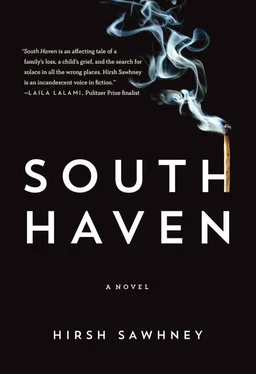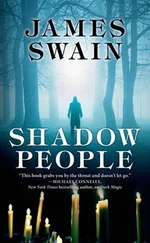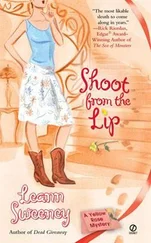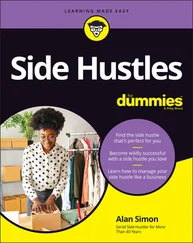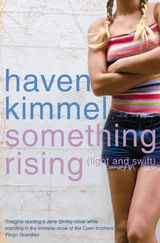Barry Uncle said, “But he should learn. He should know the truth.”
“Oh, he’ll learn.”
“Learn what?” asked Siddharth.
Mohan Lal burped, then took another sip of whiskey. “The truth about that traitor.”
“He was a homo,” said Barry Uncle.
“A British agent,” said Mohan Lal.
The men clinked their glasses together.
“Boss, you’ve always spoken the truth,” said Barry Uncle. “It’s time to share your opinions with a wider audience — to put them down in print.”
“My book’s almost finished, chief — four months ahead of schedule.”
“Yaar, that marketing nonsense is useless. Focus your talents on something important.”
Siddharth tensed up. He’d have to say something if Barry Uncle kept criticizing his father. But Mohan Lal was smiling, so Siddharth settled down.
“Okay, sir,” said Mohan Lal. “And what would you have me do?”
Barry Uncle tried to take a sip but missed his mouth, the whiskey dribbling down his chin. “You must create something you’re passionate about. Something that’s gonna make a difference.” He wiped his chin with the cuff of his shirt.
“Like what?” asked Mohan Lal.
“How about a book on Partition? A book about independence by someone who actually saw it.”
“Maybe in another lifetime,” said Mohan Lal.
“Dad, what’s Partition?”
His father ignored him.
Barry Uncle finished the last of the cashews. “You know, I’ve been telling Vineet about you. He’s very interested in your perspectives. If you wrote something, I bet he would print it.”
“Forget your Vineet,” said Mohan Lal, batting the air with his hand. “Forget your Satya Publishers. That Taj book was shit. Not at all respectable scholarship.”
“Why, boss? Tell me why.”
Siddharth remembered seeing the book — the one that looked like it had been made on a photocopier. Yeah, it was definitely a piece of shit.
“For starters, whatever you may say about the Muslims, at least they knew engineering. The Hindus couldn’t build a proper doghouse.”
“Well, that’s your perspective,” said Barry Uncle. He walked over to the entranceway and opened up his briefcase, returning to the sofa with a paperback. “Here’s his latest baby. Actually, it’s our baby. Trust me, this one you’re gonna love.”
Mohan Lal examined the book, then placed it on the coffee table.
Siddharth grabbed it. The volume was called Islam and the Infidel: What the World Should Know about Muslims but Is Afraid to Ask. The cover depicted several bearded strongmen breaking apart a temple with swords and daggers. This drawing was impressive. The men’s muscles were nicely shaded, and the carvings on the temple showed a lot of detail. Siddharth hadn’t sketched in a while. He would try to copy it later on.
As they drove to Woodford that Friday, Siddharth tugged at his uncomfortable formal clothing. His father had made him wear one of Arjun’s old blue blazers. It had gold buttons with little anchors on the cuffs. Mohan Lal was wearing a similar coat. Earlier in the week, Ms. Farber had taken Mohan Lal to lunch and given him a pair of bamboo wind chimes, which were now hanging from the maple beside the old bird feeder. She told him that she had bought some theater tickets as a surprise for his birthday and that it would be a shame for them to go to waste. Mohan Lal mulled over her invitation for a couple of days before saying yes. Siddharth had been dreading the thought of the adults going back to their sex, along with the idea of his father being so busy again — of Mohan Lal devoting too much of his energy to Ms. Farber. And yet he also appreciated that he would have his friend back. He wouldn’t have to stay after school or spend more lame afternoons with Barry Uncle.
Once they got to her house, Marc greeted him with a high five but barely said hello, which made Siddharth’s stomach tighten even further. Ms. Farber gave Mohan Lal a loose hug and no kisses. She then wrapped her arms tightly around Siddharth, whispering that he looked great and that she was sorry. He wondered why she was apologizing — for screwing his father, or for being such a freak on the phone?
The foursome drove to New Haven in relative silence, parking in a private, multistoried lot. Siddharth felt alone and wished he hadn’t come. The play, Shakespeare’s Richard III, was sold out, and throngs of glamorous people were chatting and drinking from plastic cups in the lobby. The women wore long dresses and flashy jewelry. Most were gray-haired and plump, but he nudged Marc and pointed out a few “bangable” ones. Marc cracked a smile but remained quiet. Siddharth felt that familiar emptiness swelling in his chest. It was official: his best friend hated him.
A suited usher seated them, and the enormous, opulent theater made him a little dizzy. Gigantic chandeliers shimmered on the ceiling, and complex patterns were carved into the walls. Just sitting there made him feel older, more mature. Once the performance started, the audience started snickering, but he didn’t see what was so funny. At first he thought the English accents were getting in the way, but once he got the hang of them, he decided it was the jokes. They were childish and dumb.
During the excruciating second act, the boys got up to go to the bathroom. Marc slammed his body into a vending machine, which spat out a free pack of Camels. They went outside and stood beneath a tree with bright pink blossoms. Siddharth’s mother used to beg his father to drive them downtown to admire these flowers, but Mohan Lal usually said no, making some excuse about parking. Siddharth shook these thoughts out of his mind and focused on Marc, who looked like a full-grown man as he pulled on his cigarette. Only a couple of weeks had passed, but Marc had changed. For one thing, his hair was growing out. It fell over his ears and reached down to his neck. He seemed taller too. Wider.
Marc handed him the cigarette and said, “Yo, why haven’t you called?”
Siddharth took a drag and coughed. “What?” Water sprang from his eyes. He spit up some mucous, wiping his mouth on the sleeve of his blazer. “I called, like, a hundred freaking times.”
“You’re messing with me,” said Marc.
A campus police car sped past, splashing oily water on Siddharth’s loafers. Had Marc really not gotten his messages? Or was he lying?
Marc took another drag. “I mean, you’re, like, one of my best friends. That means we’re supposed to keep in touch.”
Best friends. That made him feel a little better, lighter. They passed the cigarette back and forth until a homeless man appeared. The guy wore a leather jacket that said Vietnam Veteran and was pushing a shopping cart filled with various pieces of junk: a lamp, a tennis racket, some bottles. “Gentleman, I’m very hungry. Can you spare a dollar for some food?”
“Food?” said Marc. “Or a needle and a spoon?”
The man tilted his head to one side, staring at some faraway thing, and gave his torso a thorough scratching. Marc fished his cigarettes from his blazer pocket and handed three of them to the homeless man, who smiled and said, “Your parents — they raised you well.”
“My parents?” Marc lit one of the man’s smokes. “Dude, my parents are worse off than you.”
The man ambled away, the wheels of his shopping cart creaking loudly in the darkness.
Staring down at his soiled loafers, Siddharth mulled over the evening. He was glad that his friend was opening up, but he’d never understand the harsh way Marc spoke about his parents.
“What is it?” said Marc, pushing him on the shoulder. “What’s on your mind?”
Читать дальше
